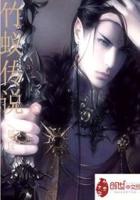Dom Claude Frollo had, however, abandoned neither science nor the education of his young brother, those two occupations of his life. But as time went on, some bitterness had been mingled with these things which were so sweet.In the long run, says Paul Diacre, the best lard turns rancid.Little Jehan Frollo, surnamed“of the Mill”because of the place where he had been reared, had not grown up in the direction which Claude would have liked to impose upon him.The big brother counted upon a pious, docile, learned, and honorable pupil.But the little brother, like those young trees which deceive the gardener's hopes and turn obstinately to the quarter whence they receive sun and air, the little brother did not grow and did not multiply, but only put forth fine bushy and luxuriant branches on the side of laziness, ignorance, and debauchery.He was a regular devil, and a very disorderly one, who made Dom Claude scowl; but very droll and very subtle, which made the big brother smile.
Claude had confided him to that same college of Torchi where he had passed his early years in study and meditation; and it was a grief to him that this sanctuary, formerly edified by the name of Frollo, should to-day be scandalized by it.He sometimes preached Jehan very long and severe sermons, which the latter intrepidly endured.After all, the young scapegrace had a good heart, as can be seen in all comedies.But the sermon over, he none the less tranquilly resumed his course of seditions and enormities.Now it was a bejaune or yellow beak, whom he had been mauling by way of welcome; a precious tradition which has been carefully preserved to our own day. Again, he had set in movement a band of scholars, who had flung themselves upon a wine-shop in classic fashion, quasi classico excitati, had then beaten the tavern-keeper“with offensive cudgels, ”and joyously pillaged the tavern, even to smashing in the hogsheads of wine in the cellar.And then it was a fine report in Latin, which the sub-monitor of Torchi carried piteously to Dom Claude with this dolorous marginal comment, —Rixa; prima causa vinum optimum potatum.Finally, it was said, a thing quite horrible in a boy of sixteen, that his debauchery often extended as far as the Rue de Glatigny.
Claude, saddened and discouraged in his human affections, by all this, had flung himself eagerly into the arms of learning, that sister which, at least does not laugh in your face, and which always pays you, though in money that is sometimes a little hollow, for the attention which you have paid to her. Hence, he became more and more learned, and, at the same time, as a natural consecondTitle, more and more rigid as a priest, more and more sad as a man.There are for each of us several parallelisms between our intelligence, our habits, and our character, which develop without a break, and break only in the great disturbances of life.
As Claude Frollo had passed through nearly the entire circle of human learning—positive, exterior, and permissible—since his youth, he was obliged, unless he came to a halt, ubi defuit orbis, to proceed further and seek other aliments for the insatiable activity of his intelligence.The antique symbol of the serpent biting its tail is, above all, applicable to science.It would appear that Claude Frollo had experienced this.Many grave persons affirm that, after having exhausted the fas of human learning, he had dared to penetrate into the nefas.He had, they said, tasted in succession all the apples of the tree of knowledge, and, whether from hunger or disgust, had ended by tasting the forbidden fruit.He had taken his place by turns, as the reader has seen, in the conferences of the theologians in Sorbonne, —in the assemblies of the doctors of art, after the manner of Saint-Hilaire, —in the disputes of the decretalists, after the manner of Saint-Martin, —in the congregations of physicians at the holy water font of Notre-Dame, ad cupam Nostroe-Dominoe.All the dishes permitted and approved, which those four great kitchens called the four faculties could elaborate and serve to the understanding, he had devoured, and had been satiated with them before his hunger was appeased. Then he had penetrated further, lower, beneath all that finished, material, limited knowledge; he had, perhaps, risked his soul, and had seated himself in the cavern at that mysterious table of the alchemists, of the astrologers, of the hermetics, of which Averroes, Gillaume de Paris, and Nicolas Flamel hold the end in the Middle Ages; and which extends in the East, by the light of the seven-branched candlestick, to Solomon, Pythagoras, and Zoroaster.
That is, at least, what was supposed, whether rightly or not. It is certain that the archdeacon often visited the cemetery of the Saints-Innocents, where, it is true, his father and mother had been buried, with other victims of the plague of 1466; but that he appeared far less devout before the cross of their grave than before the strange figures with which the tomb of Nicolas Flamel and Claude Pernelle, erected just beside it, was loaded.
It is certain that he had frequently been seen to pass along the Rue des Lombards, and furtively enter a little house which formed the corner of the Rue des Ecrivans and the Rue Marivault. It was the house which Nicolas Flamel had built, where he had died about 1417, and which, constantly deserted since that time, had already begun to fall in ruins, —so greatly had the hermetics and the alchemists of all countries wasted away the walls, merely by carving their names upon them.Some neighbors even affirm that they had once seen, through an air-hole, Archdeacon Claude excavating, turning over, digging up the earth in the two cellars, whose supports had been daubed with numberless couplets and hieroglyphics by Nicolas Flamel himself.It was supposed that Flamel had buried the philosopher's stone in the cellar; and the alchemists, for the space of two centuries, from Magistri to Father Pacifique, never ceased to worry the soil until the house, so cruelly ransacked and turned over, ended by falling into dust beneath their feet.
Again, it is certain that the archdeacon had been seized with a singular passion for the symbolical door of Notre-Dame, that page of a conjuring book written in stone, by Bishop Guillaume de Paris, who has, no doubt, been damned for having affixed so infernal a frontispiece to the sacred poem chanted by the rest of the edifice. Archdeacon Claude had the credit also of having fathomed the mystery of the colossus of Saint Christopher, and of that lofty, enigmatical statue which then stood at the entrance of the vestibule, and which the people, in derision, called“Monsieur Legris.”But, what every one might have noticed was the interminable hours which he often employed, seated upon the parapet of the area in front of the church, in contemplating the sculptures of the front; examining now the foolish virgins with their lamps reversed, now the wise virgins with their lamps upright; again, calculating the angle of vision of that raven which belongs to the left front, and which is looking at a mysterious point inside the church, where is concealed the philosopher's stone, if it be not in the cellar of Nicolas Flamel.
It was, let us remark in passing, a singular fate for the Church of Notre-Dame at that epoch to be so beloved, in two different degrees, and with so much devotion, by two beings so dissimilar as Claude and Quasimodo. Beloved by one, a sort of instinctive and savage half-man, for its beauty, for its stature, for the harmonies which emanated from its magnificent ensemble; beloved by the other, a learned and passionate imagination, for its myth, for the sense which it contains, for the symbolism scattered beneath the sculptures of its front, —like the first text underneath the second in a palimpsest, —in a word, for the enigma which it is eternally propounding to the understanding.
Furthermore, it is certain that the archdeacon had established himself in that one of the two towers which looks upon the Grève, just beside the frame for the bells, a very secret little cell, into which no one, not even the bishop, entered without his leave, it was said.This tiny cell had formerly been made almost at the summit of the tower, among the ravens'nests, by Bishop Hugo de Besan?on who had wrought sorcery there in his day.What that cell contained, no one knew; but from the strand of the Terrain, at night, there was often seen to appear, disappear, and reappear at brief and regular intervals, at a little dormer window opening upon the back of the tower, a certain red, intermittent, singular light which seemed to follow the panting breaths of a bellows, and to proceed from a flame, rather than from a light.In the darkness, at that height, it produced a singular effect; and the goodwives said:“There's the archdeacon blowing!hell is sparkling up yonder!”
There were no great proofs of sorcery in that, after all, but there was still enough smoke to warrant a surmise of fire, and the archdeacon bore a tolerably formidable reputation. We ought to mention however, that the sciences of Egypt, that necromancy and magic, even the whitest, even the most innocent, had no more envenomed enemy, no more pitiless denunciator before the gentlemen of the officialty of Notre-Dame.Whether this was sincere horror, or the game played by the thief who shouts, “stop thief!”at all events, it did not prevent the archdeacon from being considered by the learned heads of the chapter, as a soul who had ventured into the vestibule of hell, who was lost in the caves of the cabal, groping amid the shadows of the occult sciences.Neither were the people deceived thereby; with any one who possessed any sagacity, Quasimodo passed for the demon; Claude Frollo, for the sorcerer.It was evident that the bellringer was to serve the archdeacon for a given time, at the end of which he would carry away the latter's soul, by way of payment.Thus the archdeacon, in spite of the excessive austerity of his life, was in bad odor among all pious souls; and there was no devout nose so inexperienced that it could not smell him out to be a magician.
And if, as he grew older, abysses had formed in his science, they had also formed in his heart. That at least, is what one had grounds for believing on scrutinizing that face upon which the soul was only seen to shine through a sombre cloud.Whence that large, bald brow?that head forever bent?that breast always heaving with sighs?What secret thought caused his mouth to smile with so much bitterness, at the same moment that his scowling brows approached each other like two bulls on the point of fighting?Why was what hair he had left already gray?What was that internal fire which sometimes broke forth in his glance, to such a degree that his eye resembled a hole pierced in the wall of a furnace?
These symptoms of a violent moral preoccupation, had acquired an especially high degree of intensity at the epoch when this story takes place.More than once a choir-boy had fled in terror at finding him alone in the church, so strange and dazzling was his look.More than once, in the choir, at the hour of the offices, his neighbor in the stalls had heard him mingle with the plain song, ad omnem tonum, unintelligible parentheses.More than once the laundress of the Terrain charged“with washing the chapter”had observed, not without affright, the marks of nails and clenched fingers on the surplice of monsieur the archdeacon of Josas.
However, he redoubled his severity, and had never been more exemplary. By profession as well as by character, he had always held himself aloof from women; he seemed to hate them more than ever.The mere rustling of a silken petticoat caused his hood to fall over his eyes.Upon this score he was so jealous of austerity and reserve, that when the Dame de Beaujeu, the king's daughter, came to visit the cloister of Notre-Dame, in the month of December, 1481, he gravely opposed her entrance, reminding the bishop of the statute of the Black Book, dating from the vigil of Saint-Bartholomew, 1334, which interdicts access to the cloister to“any woman whatever, old or young, mistress or maid.”Upon which the bishop had been constrained to recite to him the ordinance of Legate Odo, which excepts certain great dames, aliquoe magnates mulieres, quoe sine scandalo evitari non possunt.And again the archdeacon had protested, objecting that the ordinance of the legate, which dated back to 1207, was anterior by a hundred and twenty-seven years to the Black Book, and consequently was abrogated in fact by it.And he had refused to appear before the princess.
It was also noticed that his horror for Bohemian women and gypsies had seemed to redouble for some time past. He had petitioned the bishop for an edict which expressly forbade the Bohemian women to come and dance and beat their tambourines on the place of the Parvis; and for about the same length of time, he had been ransacking the mouldy placards of the officialty, in order to collect the cases of sorcerers and witches condemned to fire or the rope, for complicity in crimes with rams, sows, or goats.
Chapter6 Unpopularity
The archdeacon and the bellringer, as we have already said, were but little loved by the populace great and small, in the vicinity of the cathedral. When Claude and Quasimodo went out together, which frequently happened, and when they were seen traversing in company, the valet behind the master, the cold, narrow, and gloomy streets of the block of Notre-Dame, more than one evil word, more than one ironical quaver, more than one insulting jest greeted them on their way, unless Claude Frollo, which was rarely the case, walked with head upright and raised, showing his severe and almost august brow to the dumbfounded jeerers.
Both were in their quarter like“the poets”of whom Régnier speaks, —
“All sorts of persons run after poets,
As warblers fly shrieking after owls.”
Sometimes a mischievous child risked his skin and bones for the ineffable pleasure of driving a pin into Quasimodo's hump.Again, a young girl, more bold and saucy than was fitting, brushed the priest's black robe, singing in his face the sardonic ditty, “niche, niche, the devil is caught.”Sometimes a group of squalid old crones, squatting in a file under the shadow of the steps to a porch, scolded noisily as the archdeacon and the bellringer passed, and tossed them this encouraging welcome, with a curse:“Hum!there's a fellow whose soul is made like the other one's body!”Or a band of schoolboys and street urchins, playing hop-scotch, rose in a body and saluted him classically, with some cry in Latin:“Eia!eia!Claudius cum claudo!”
But the insult generally passed unnoticed both by the priest and the bellringer. Quasimodo was too deaf to hear all these gracious things, and Claude was too dreamy.














